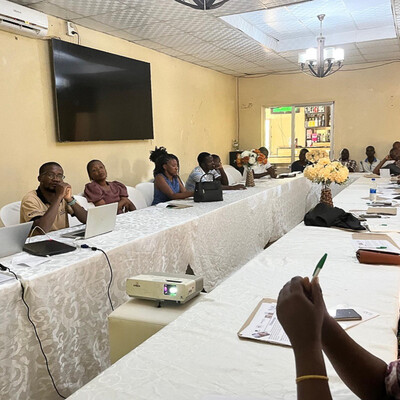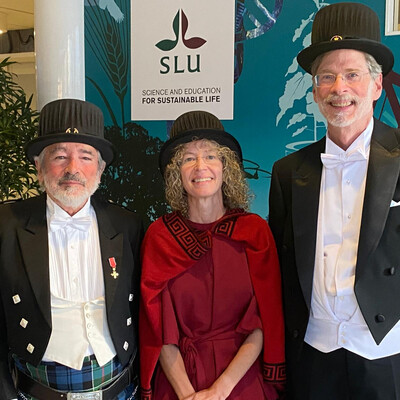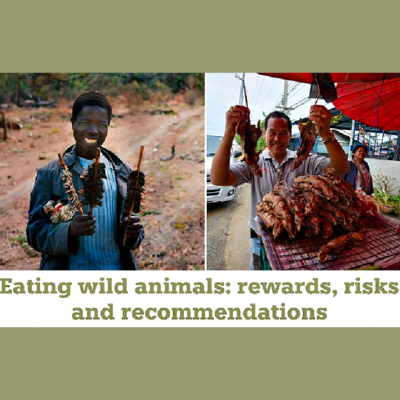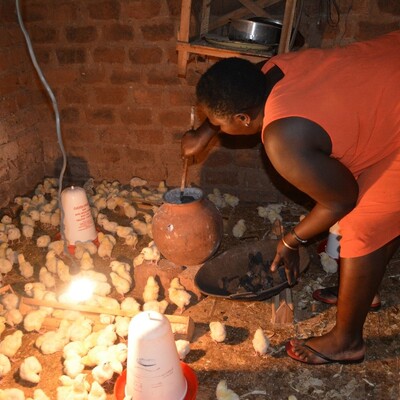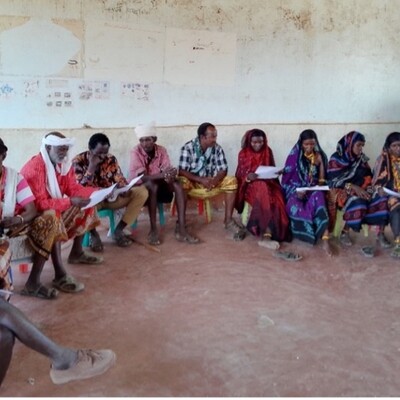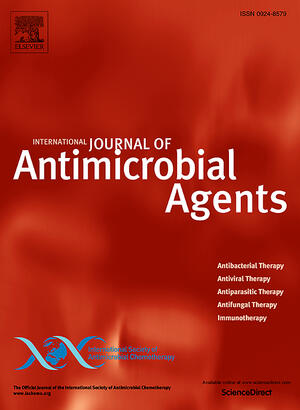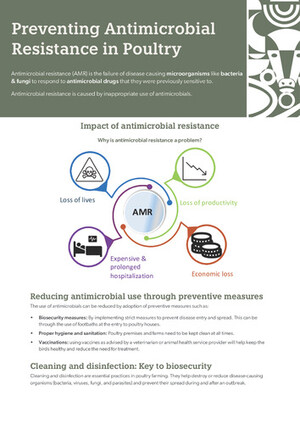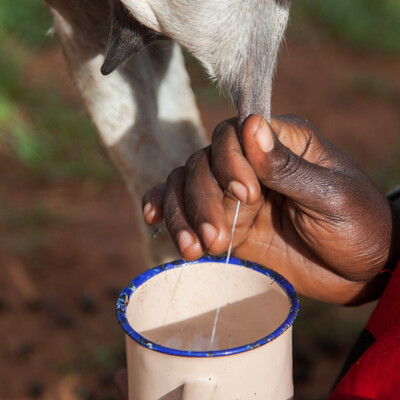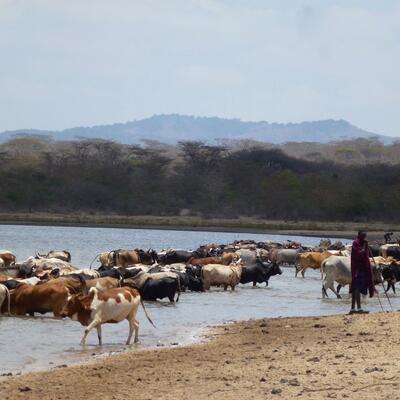
Exploring the use of participatory epidemiology in controlling antibiotic resistance
Participatory epidemiology is a branch of veterinary epidemiology which is commonly used in the control and early warning of infectious diseases within resource-limited settings. It combines communications skills with participatory methods to engage livestock keepers and other animal health stakeholders in the identification, assessment, prevention and control of animal diseases.
Recently, a team of human health and animal health scientists from different institutions and universities published a review paper on ‘Participatory epidemiology: principles, practice, utility, and lessons learnt’ in Frontiers in Veterinary Science to provide an update on the increasingly diverse applications of participatory epidemiology in Africa and Asia.
As part of celebrating the World Antibiotic Awareness Week (18–24 Nov), which is commemorated each November to raise awareness of antibiotic resistance (AMR), we highlight a section from this paper on applying participatory epidemiology in controlling AMR in Vietnam. The research in Vietnam was done collaboratively by researchers from the University of Queensland, the International Livestock Research Institute (ILRI), the Hanoi University of Public Health and Thai Nguyen University of Agriculture and Forestry.
AMR is regarded as one of the biggest emerging threats to human and animal health. Many antimicrobials are shared between veterinary and human health sectors. While a rise in AMR anywhere in the world increases the risk everywhere, the impacts are predicted to be felt more heavily in low and middle-income countries like Vietnam where the health system is under great pressure and antimicrobials can often be easily purchased without prescription.
The initiative introduced in this paper used participatory approaches to engage a variety of livestock production stakeholders in Thai Nguyen to explore and identify leverage points for the improved use of antimicrobials in veterinary healthcare.
Multi-stakeholder workshop to finalize list of interventions in September 2018 (photo credit: Thai Nguyen University of Agriculture and Forestry).
Firstly, focus group discussions with farmers were applied to identify additional stakeholders and themes for further study. The themes were further explored through semi-structured interview and surveys. After preliminary data analysis, the findings were presented to the community for interpretation and development of a list of proposed interventions for improved antimicrobial stewardship. Using a systems approach, this stage included a multi-step process of individual stakeholder group workshops followed by a multi-stakeholder workshop to explore points of divergence and develop the final list of interventions. This was followed by a final consultation workshop where participants presented the list to external stakeholders including decision-makers.
The use of a participatory approach ensured that the views of farmers and community stakeholders remained central to the pursuit of reducing AMR (photo credit: University of Queensland-ILRI/Tarni Cooper).
According to the authors, the use of a participatory approach ensured that the views of farmers and community stakeholders remained central to the pursuit of reducing AMR. They conclude that ‘through maintaining farmers as central stakeholders in the research and including other groups the farmers identified as important, this participatory process highlighted opportunities to improve antimicrobial stewardship that were agreeable to all.’
Read the full publication: Participatory epidemiology: principles, practice, utility, and lessons learnt
For more information on this Vietnam study contact ILRI Graduate Fellow and University of Queensland PhD candidate Tarni Cooper at t.cooper@uq.edu.au
This study was funded by the CGIAR Research Program on Agriculture for Nutrition and Health and further supported by an Australian Government Research Training Program scholarship.
Read more papers on AMR from ILRI East and Southeast Asia.
Mitchell, M.E.V., Alders, R., Unger, F., Hung, Nguyen-Viet., Trang Thi Huyen Le. and Toribio, J. A. 2020. The challenges of investigating antimicrobial resistance in Vietnam – what benefits does a One Health approach offer the animal and human health sectors? BMC Public Health 20: 213. https://hdl.handle.net/10568/107087.
Brunton, L.A., Desbois, A.P., Garza, M., Wieland, B., Mohan, C.V., Häsler, B., Tam, C.C., Phuc Nguyen Thien Le, Nguyen Thanh Phuong, Phan Thi Van, Hung Nguyen-Viet, Eltholth, M.M., Dang Kim Pham, Phuc Pham Duc, Nguyen Tuong Linh, Rich, K.M., Mateus, A.L.P., Hoque, M.A., Ahad, A., Khan, M.N.A., Adams, A. and Guitian, J. 2019. Identifying hotspots for antibiotic resistance emergence and selection, and elucidating pathways to human exposure: Application of a systems-thinking approach to aquaculture systems. Science of the Total Environment 687: 1344–1356. https://hdl.handle.net/10568/101611.
Phuc Pham-Duc, Hung Nguyen-Viet, Toan Luu-Quoc, Cook, M.A., Phuong Trinh-Thi-Minh, Payne, D., Trang Dao-Thu, Grace, D. and Sinh Dang-Xuan. 2020. Understanding antibiotic residues and pathogens flow in wastewater from smallholder pig farms to agriculture field in Ha Nam Province, Vietnam. Environmental Health Insights 14. https://hdl.handle.net/10568/109755








